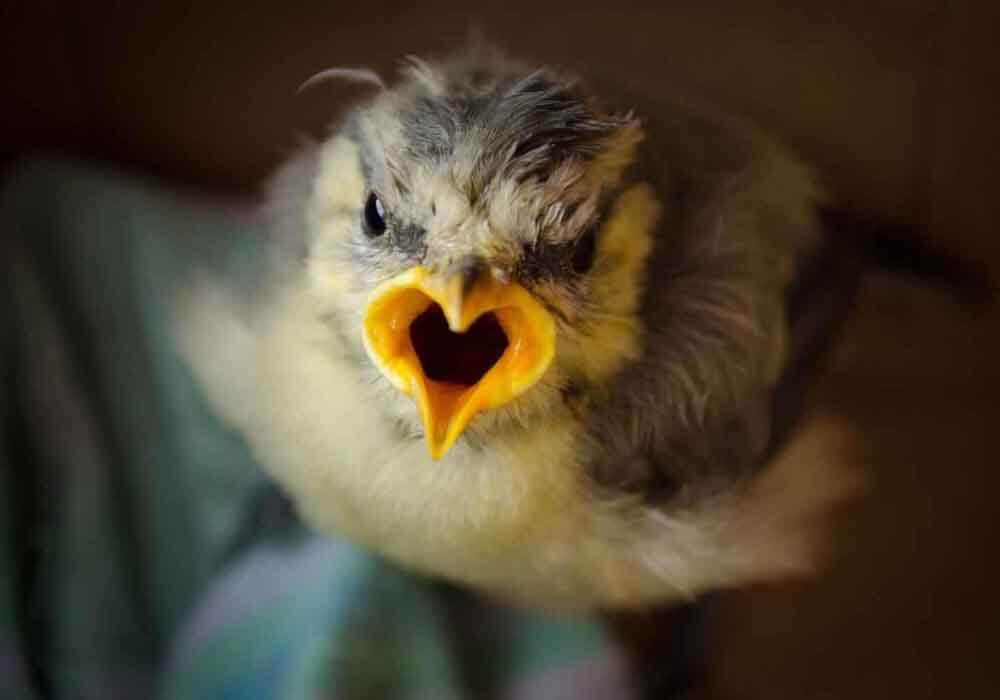Do Birds Sleep?
Where, When, Why and How?...We Answer It All
We all need good rest to get us through each day–birds included. But many wonder how birds recharge their batteries when it’s quite rare to catch them in their slumber. Do they somehow regain their energy through other means, or do birds sleep just like the rest of us?
Birds do sleep. Most sleep during the night, just like humans and other animals. Others are nocturnal and are awake in the nightime and asleep during the day. It’s also common for birds to take naps during the day while hanging on to branches, in tree cavities or nests, chimneys, and gutters.
Birds have a unique way of sleeping that makes observing them in the wild and keeping domesticated ones as pets a fun experience. Let’s find out more about how birds sleep, when and where they sleep, and more in this article.

Do Birds Really Sleep?
Birds sleep just like any animal or human being. Birds that don’t get enough sleep are weaker and are less able to protect themselves against predators in the wild. On average, birds need 12 hours of sleep a day.
That’s a lot of sleeping hours, especially considering that humans barely get seven to eight hours of sleep! And, you may be wondering how that can be possible when you’ve never seen a bird sleep in your life. Well, you most likely have already seen a sleeping bird a few times, you just didn’t know that you were looking at one.
Kinds of Birds and Their Sleeping Habits
How birds behave when they sleep (and where they do so) depends on what kind of bird they are. If you are an avid bird watcher or if you have a pet bird at home, here are some basic bird types and how they sleep to help guide you.
Nocturnal Birds
Most birds are diurnal, which means that they sleep at night and are awake during the daytime. But there are birds that have the opposite sleep-wake cycle, like owls, nightingales, and nighthawks, that catch up on their zzz’s during the daytime.
In the wild, these birds can usually be found in tree cavities or perched high up in the trees or hidden in thick foliage, where they can be safe from sharp-eyed predators, such as raptors that sweep through large areas by surveying in the air.
Birds are also known to be very good at looking for safe spaces to hide or find shelter, which comes in handy for the nocturnal birds that are at higher risk of getting spotted by predators and even human poachers during the day.
Diurnal Birds
The majority of birds are active in the daytime, such as falcons, eagles, and parrots. These are the birds that you hear twittering in the early morning or that you see with insects in their beaks as they forage while the sun is up.
Like us humans, they get most of their rest from sleeping at night, and this is largely because they are unable to do anything else without sufficient light.
Some birds, however, do make up for lost sleep by napping throughout the day or when they find an abandoned nest or a cozy little chimney. This is especially true for those out in the wild that are unable to find a safe spot to sleep in at night.
Water Birds
Water birds are diurnal. However, unlike other birds, they sleep while floating on the surface of the water, sometimes with one eye open. These birds have a unique ability to allow their brains to be “awake” as they sleep so that they can react quickly in the presence of any danger.
While water birds usually sleep in the water, they may also be found in low-lying tree cavities, abandoned nests, or other such shelters when away from their usual habitat.
How To Help Birds Get Uninterrupted Sleep
If you have a pet bird, one of the most important things to do is to make sure that they are able to get a good night’s rest. Birds are extremely alert creatures, and the slightest disturbance can rouse one in the middle of the night.
Here are some of the things that you can do to prevent that from happening:
Turn Off External Light
Diurnal birds are very sensitive to light. The tiniest illumination can wake them up or confuse them into thinking that it’s morning. If you have a pet bird at home, turning off any light source that can illuminate their space can help them maintain a good sleeping pattern.
Birders or those who are in charge of monitoring wild birds also need to extinguish light sources at night because this makes birds feel exposed to predators and unable to relax.
Provide a Safe and Cozy Shelter
Birds are able to sleep better when they feel safe in their environment. So, to help them get a good night’s sleep, you can mimic natural nesting areas or provide a brush pile to allow them to feel as if they’re secure inside a well-hidden tree cavity or birdhouse.
Another factor in making their environment comfortable is making sure that other animals that can make them feel threatened have no access to them. Animals like cats and dogs that linger around in the house can keep birds on high alert, especially when they are within reach of these bigger animals.
Keep the Noise Down
Birds are not only sensitive to light. They can be roused by the tiniest sound too. In fact, avian hearing is so sharp that they can detect faraway bird calls. So if you are a birder who wants to make sure every bird in your keep gets uninterrupted sleep, you will want to remove any source of loud noises at night.
Sharp sounds, like those of people yelling, can make them feel like danger is close at hand and, therefore, remain on high alert to keep from getting preyed upon.
Do Birds Sleep Standing Up or Lying Down?
Different birds sleep in varying positions. Most birds sleep standing up or perched securely on branches, while some hanging upside down, some float, some lie down on their side, and others sleep standing up on one leg. Birds are able to fix their bodies to a branch because of their flexor tendon.
The flexor tendon is responsible for clamping their toes around a branch by involuntarily closing their toes when they fall asleep. This allows birds to stay fixed in place as they sleep–even when they sleep hanging upside down!
But it’s not just the flexor tendon that’s responsible for this amazing feat. Unlike humans, bird brains remain active even when they are asleep. Some bird species may close only one eye while keeping the other eye open, while others close both eyes in sleep.
But regardless of whether both eyes or only one is open, what they have in common is that their brains continue to be on guard as they snooze. This is why birds are able to respond at the slightest hint of danger (such as the presence of another bird, human, or animal) and fly away to safety.
Unfortunately, this incredible capability of their brains to stay alert does affect the quality of their sleep. When birds sleep in places where they don’t feel entirely secure, they will sleep lighter, a phenomenon that’s referred to as unihemispheric slow-wave sleep. This sleep state is very shallow and easily interrupted.
They do make up for the lack of a good night’s rest, though, by having naps during certain snatches in the day when they are able to find a safe spot to close their eyes (or eye) in.
Awww! Check out the position this Hummingbird is sleeping!
Do Birds Dream?
Unlike dogs and cats, there are not enough studies for us to say conclusively that birds do dream. Nevertheless, some people claim that birds are capable of dreaming because they have the ability to enter REM sleep, the same sleep state in which humans are able to dream.
Unfortunately, these claims are hardly backed by science. At the moment, even the claim that birds enter REM sleep is still an area of debate. While there are signs that birds experience REM sleep, science has not yet proven that it actually does occur in birds.
Whether you believe that birds do dream or not, though, there have been studies conducted on Zebra Finches that showed their brains to have sudden bursts of activity during sleep. Whether this brain activity equates to dreaming, we can’t tell just yet.
Do Birds Sleep at Night or During the Day?
There are two kinds of birds in terms of sleep patterns: diurnal and nocturnal. Diurnal birds sleep at night, while nocturnal ones sleep during the day. Most diurnal predators, such as raptors, are known for visual acuity, while nocturnal birds have strong visual sensitivity.
Diurnal birds also sleep at night because they need light to navigate and put their keen sense of sight to action, especially when searching for prey. While their sense of hearing is pretty sharp as well, it does not come close to their incredible eyesight.
Nocturnal birds, on the other hand–like owls–have eyes that are equipped with night vision. They can sense movement and see things in the dark, unlike their diurnal counterparts. They also have an amazing capability to choose safe hideouts during the day so that they are out of sight of other birds of prey.
Where Do Birds Sleep at Night?
Birds commonly sleep in tree cavities, abandoned nests, empty birdhouses, chimneys, gutters, and other similar spaces, especially when these are hidden in dense foliage. Birds have a keen sense of whether a selected shelter is safe or not, which helps them determine where best to spend the night.
Also, birds in the wild usually do not sleep where they have built their nests. This is because nests can be like magnets to predators. They know that spending the night in these “hot spots” makes them vulnerable to larger birds.
Birds only use nests that they built to incubate eggs and raise their offspring. During the day, parent birds typically check on these nests frequently during their foraging trips to make sure that their babies are safe.
Do Birds Sleep With Their Eyes Open?
Most birds sleep with one eye open, especially when they do not feel safe in their surroundings. Bird brains work in such a way as to allow them to stay alert and on the lookout for predators or other dangers while they sleep so that they are able to escape to safety.
That being said, birds can and do sleep with both eyes closed, especially when they are sleeping deeply. When they feel relaxed and comfortable in their environment, they are able to fall into a deep sleep much easier, although it affects how quickly they are able to respond to external stimuli.
When you see a bird sleeping with both eyes closed, it means that it doesn’t feel any threat in its environment.
Do Young Birds Sleep a Lot?
Like human babies, young birds do sleep a lot because they need it to grow and develop properly. A young bird typically needs 12 to 14 hours of sleep a day. Sleeping time will grow shorter as the birds mature into adults.
How Much Sleep Do Birds Need?
Most birds typically need at least 10 hours of sleep. However, birds rarely sleep this long in one go. Most sleep a few hours straight at night and complement their sleep time with a few naps during the day (for diurnal birds) or night (for nocturnal birds).
Good sleep is essential for birds to maintain optimum performance. Just like other animals, their ability to stay alert, how quickly they can fly (and how well), and other functions are affected when they are unable to get enough rest.
Can Birds Sleep While Flying?
Some birds can sleep while flying. This is common among migratory birds, like frigate birds, that fly for hours on end. They make sure to catch up on some sleep by going on unihemispheric slow-wave sleep, where half of their brain stays alert while the other sleep.
Do Birds Sleep?...Final Thoughts
Birds are some of the most fascinating creatures in nature, so fascinating that even in sleep, they show us how incredibly their brains and bodies work. With the way their minds are wired, you could even argue that birds do not sleep at all.
Back To The TOP Of This Do Birds Sleep Page

About the Author...
Richard Worden, a dedicated bird lover for over 20 years, I love to share my in-depth knowledge and passion for birds. Read more About Me and my expertise in this field.
- We Know Birds HOME ›
- Bird Behavior Facts and Information ›
- Do Birds Sleep?



